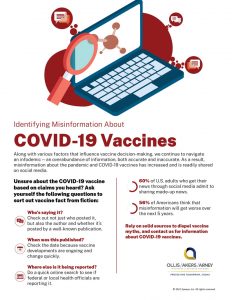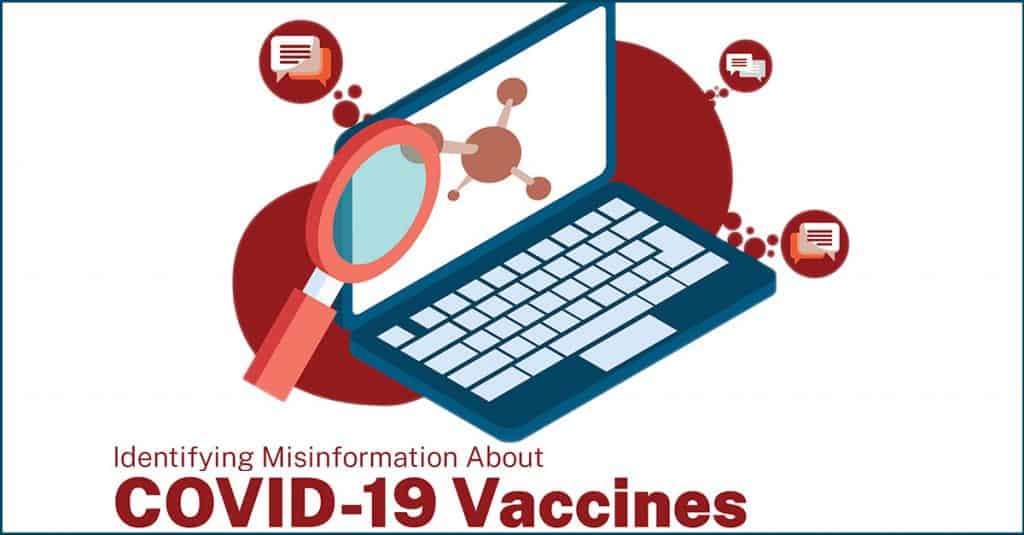In a newsletter update, TheKnowBe4 Security Team shared an example of a recent COVID-19 vaccine related phishing attack and some tips on spotting these scams:
Access to the COVID-19 vaccine is limited, which leaves many people anxiously waiting for a way to further protect themselves from the virus. Cybercriminals are taking advantage of this anxiety with vaccine-themed phishing emails.
A recent phishing attack in the UK spoofs the National Health Service (NHS). The phishing email claims that you have the opportunity to get vaccinated and it includes a link to accept the invitation. If you click on the link, a convincing NHS look-alike page opens. The phony site asks for personal information such as your name, address, and phone number, along with your credit card and banking details. Unfortunately, any information that you provide here goes straight to the cybercriminals and you are not in line for vaccination.
Follow these tips to stay safe from similar scams:
- We all want the pandemic to be over and this attack tries to exploit those feelings. Don’t let the bad guys toy with your emotions. Think before you click!
- Don’t trust an email. Visit an official government website or a trusted news source for information on vaccine availability.
- Remember, even if the sender appears to be a legitimate organization, the email address could be spoofed.
Stop, Look, and Think. Don’t be fooled.
The KnowBe4 Security Team
KnowBe4.com

Since COVID-19 vaccine demand is increasing and distribution varies by state, scammers are trying to take advantage of uncertainty and confusion to steal money and personal information from vaccine seekers. Scammers are using phone calls, text messages, social media platforms and door-to-door visits to commit these COVID-19 related scams.
Ways to Avoid COVID-19 Vaccine Scams
Keep in mind that there is no special list to receive early access to a COVID-19 vaccine, nor can you pay for immediate access to a vaccine.
Americans are encouraged to be patient as vaccine distribution and developments evolve. The Federal Trade Commission (FTC) has provided the following tips to help you avoid a vaccine-related scam:
- Contact a trusted source for information. Check with state or local health departments to learn when and how to get the COVID-19 vaccine.
- Don’t pay to sign up for the vaccine. Anyone who asks for a payment to put you on a list or make an appointment is a scammer.
- Ignore advertisements for the COVID-19 vaccine, especially those posted on social media. No legitimate vaccine is for sale. The vaccine is only available at federal- and state-approved locations.
- Watch for unusual texts. Never trust the legitimacy of a text message. However, if your health care provider or pharmacist has previously used text messages to contact you, you might get a text from them when you’re eligible to be vaccinated.
- Don’t open emails, attachments or links from people you don’t know. If you open or click those suspicious items, you could be downloading dangerous malware onto your computer or phone.
- Don’t share your personal or financial information with people you don’t know. Nobody from a vaccine distribution site or health care provider’s office will call, text or email you asking for your Social Security number, credit card information or bank account number to sign you up to receive the vaccine.
What’s Next?
As you wait for your turn to receive the COVID-19 vaccine, it’s important to be patient and stay alert. Continue to monitor vaccine eligibility and availability from local health care providers.
If you’re aware of a COVID-19 vaccine scam or think you’ve been a victim of a vaccine scam, immediately let the FTC know at ReportFraud.ftc.gov.
Stay informed by subscribing to consumer alerts from the FTC. We will keep you informed about any notable changes.
For help with other questions or business services contact Ollis/Akers/Arney Insurance & Business Advisors.


